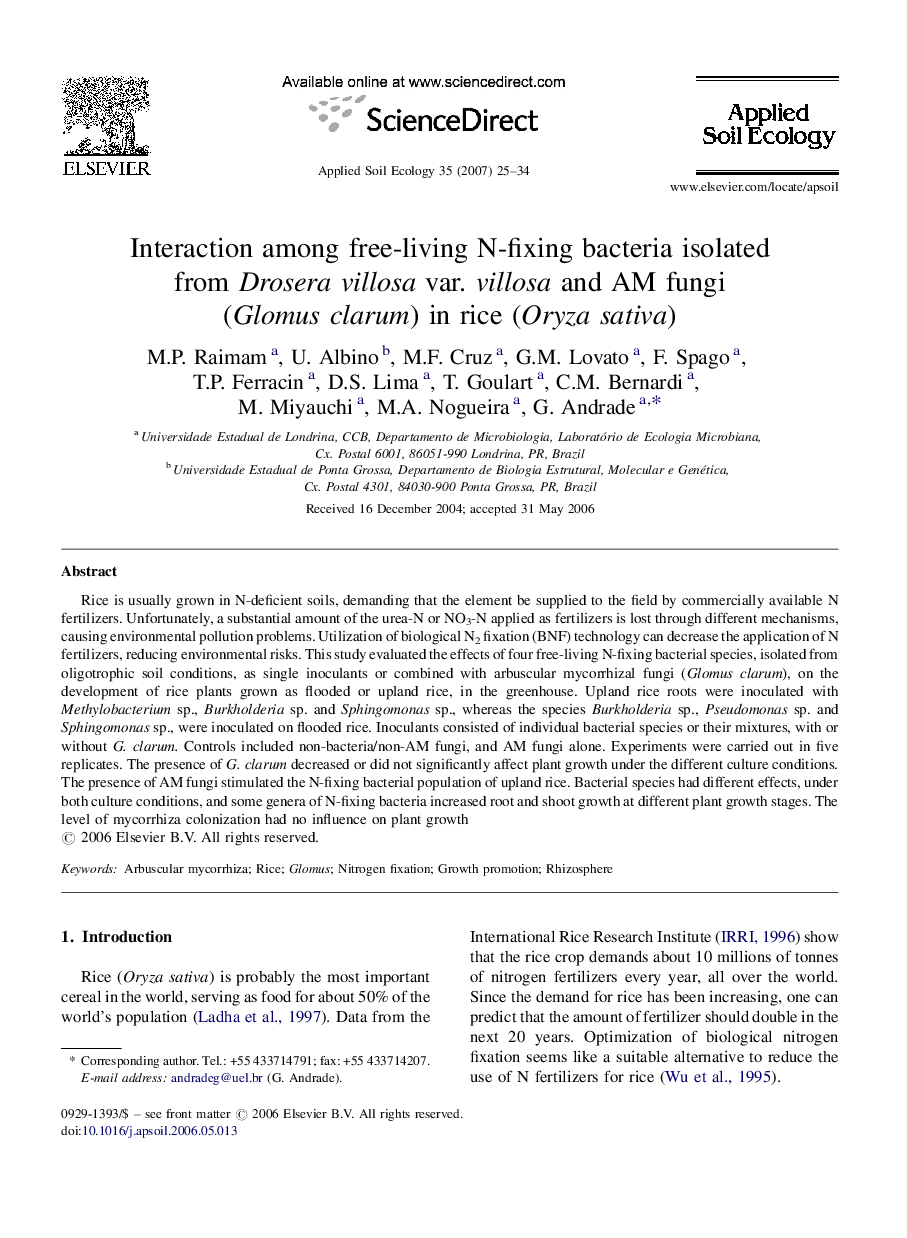| Article ID | Journal | Published Year | Pages | File Type |
|---|---|---|---|---|
| 4383518 | Applied Soil Ecology | 2007 | 10 Pages |
Rice is usually grown in N-deficient soils, demanding that the element be supplied to the field by commercially available N fertilizers. Unfortunately, a substantial amount of the urea-N or NO3-N applied as fertilizers is lost through different mechanisms, causing environmental pollution problems. Utilization of biological N2 fixation (BNF) technology can decrease the application of N fertilizers, reducing environmental risks. This study evaluated the effects of four free-living N-fixing bacterial species, isolated from oligotrophic soil conditions, as single inoculants or combined with arbuscular mycorrhizal fungi (Glomus clarum), on the development of rice plants grown as flooded or upland rice, in the greenhouse. Upland rice roots were inoculated with Methylobacterium sp., Burkholderia sp. and Sphingomonas sp., whereas the species Burkholderia sp., Pseudomonas sp. and Sphingomonas sp., were inoculated on flooded rice. Inoculants consisted of individual bacterial species or their mixtures, with or without G. clarum. Controls included non-bacteria/non-AM fungi, and AM fungi alone. Experiments were carried out in five replicates. The presence of G. clarum decreased or did not significantly affect plant growth under the different culture conditions. The presence of AM fungi stimulated the N-fixing bacterial population of upland rice. Bacterial species had different effects, under both culture conditions, and some genera of N-fixing bacteria increased root and shoot growth at different plant growth stages. The level of mycorrhiza colonization had no influence on plant growth
